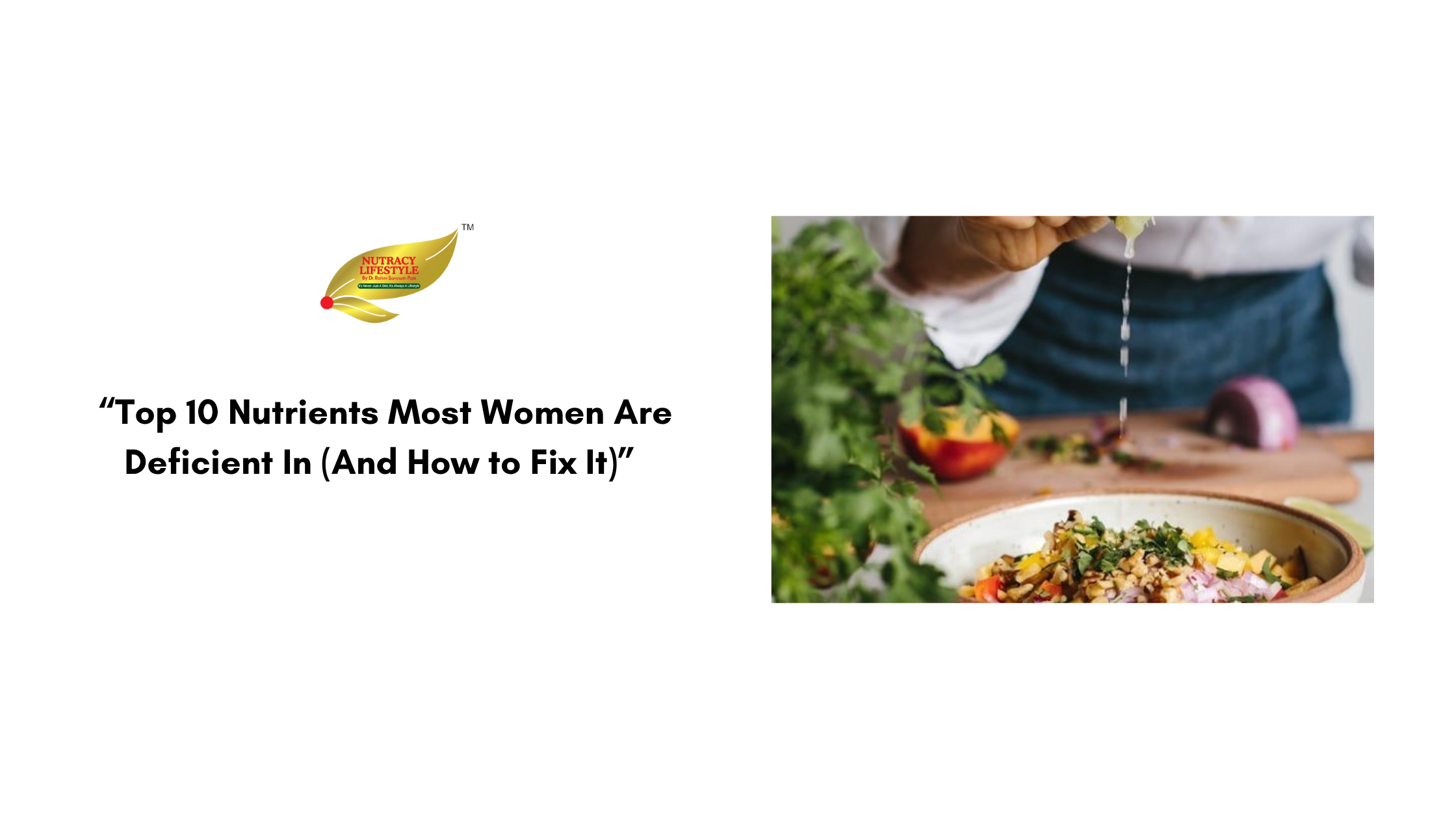Even with growing awareness on the subject of nutrition, most women—regardless of age—lack essential nutrients necessary for hormone balance, energy, skin health, and overall wellness. A glimpse into the top 10 nutrient deficiencies among women, with how to correct them with food and lifestyle.
1. Iron
Why it matters: Facilitates oxygen transportation and energy levels.
Add iron-containing foods such as spinach, lentils, red meat, and fortified cereals. Take with vitamin C for greater absorption.
2. Vitamin D
Why it matters: Important for bone health, immune function, and mood.
Take 15–20 minutes of sunlight per day, and consume fatty fish, mushrooms, and enriched dairy. Supplement if low.
3. Calcium
Why it's important: Helps maintain strong bones and avoids osteoporosis.
Eat dairy, tofu, sesame seeds, almonds, and green leafy vegetables. Women aged above 30 require extra attention here.
4. Magnesium
Why it matters: Controls muscle function, sleep, and symptoms of PMS.
Stock up on nuts, seeds, whole grains, dark chocolate, and bananas.
5. Omega-3 Fatty Acids
Why it matters: It supports heart health, hormones, and inflammation reduction.
Consume walnuts, flaxseeds, chia seeds, and fatty fish such as salmon.
6. Vitamin B12
Why it's important: Essential for nerve function, energy, and red blood cell formation.
Found in animal foods—meat, eggs, and milk. Vegans must take a supplement.
7. Folate (B9)
Why it's important for pregnancy, cell repair, and fertility.
Make it right: Include oranges, lentils, leafy greens, and fortified cereals.
8. Zinc
Why it's important to enhance skin health and strengthen immunity.
Make it right: Eat whole grains, cashews, legumes, and pumpkin seeds.
9. Iodine
Why it's important keeps hormones and the thyroid in balance.
Make it right: Eat eggs, dairy, and seaweed, and use iodized salt.
10. Potassium
Why it matters: Controls fluid balance and blood pressure.
Include bananas, sweet potatoes, coconut water, and avocados in your diet.
Final Tip: Get your levels checked yearly and work with a nutritionist to patch the holes with food first—and supplements, only if necessary. Balanced nutrition is not negotiable for women's health!


